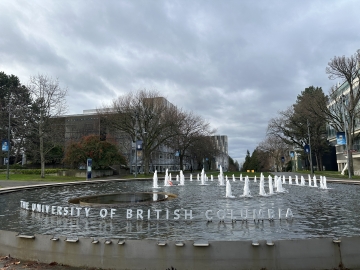The Center for Positive/Empirical Analysis of Political Economy supports Waseda students who study abroad through the international network QTEM (Quantitative Techniques for Economics and Management). Below are mid-term reports from the students who are now studying at Tilburg University and University of Amsterdam.
KURATA, Reo Graduate School of Economics M1
I am Reo Kurata, a 1st year masters student at Waseda GSE. Now, I am staying in the Netherlands as an exchange student for one semester from August 2022 through the QTEM program, which is supported by the Japanese government’s SGU project.
My motivation for participating in this program was to acquire quantitative skills in Economics and improve my English. My host university, Tilburg University, is famous for the high-level education of its Economics department. In addition, I heard that most Dutch people could speak English well. That’s why I thought Tilburg would be the right place for me to study. Although I did not have much time to prepare before studying abroad, I succeeded in making it in time, thanks to the great support from the GSE/SGU offices.
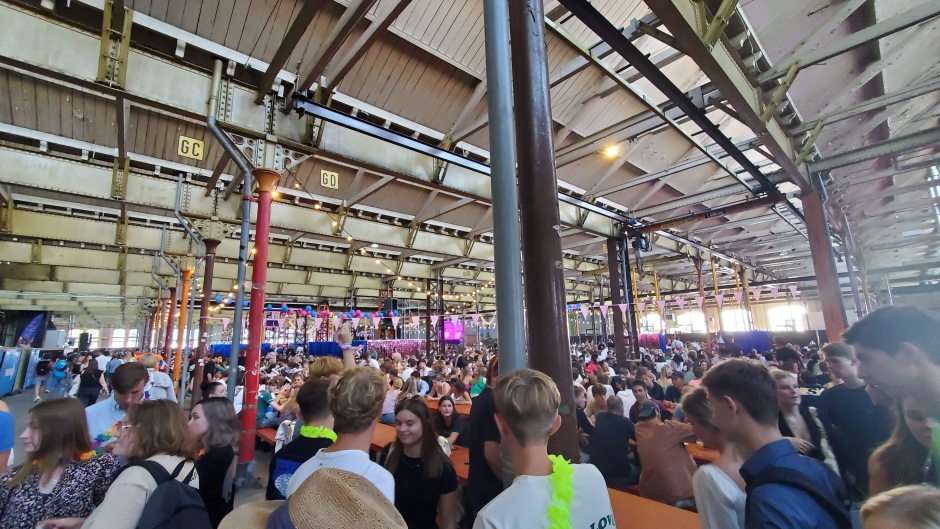
Welcome week “TOP Week”
Here is the world “after-Covid” entirely, much different than the Covid-19 situation in Japan before I left.
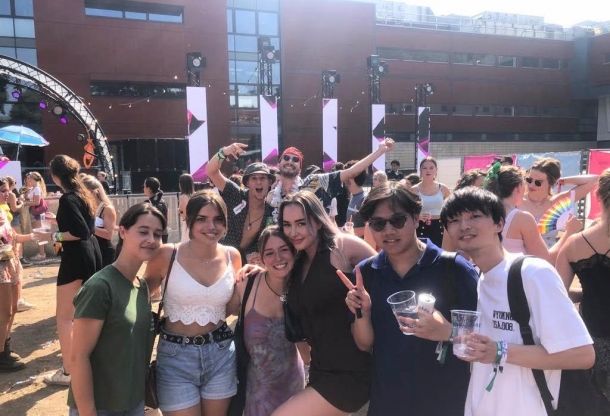
With my friends at TOP Week.
Indeed, during the welcome week (called TOP week) where parties are held every day and night, everybody enjoys eating and drinking, or chatting without face masks, which was a strange sight for me at the time.
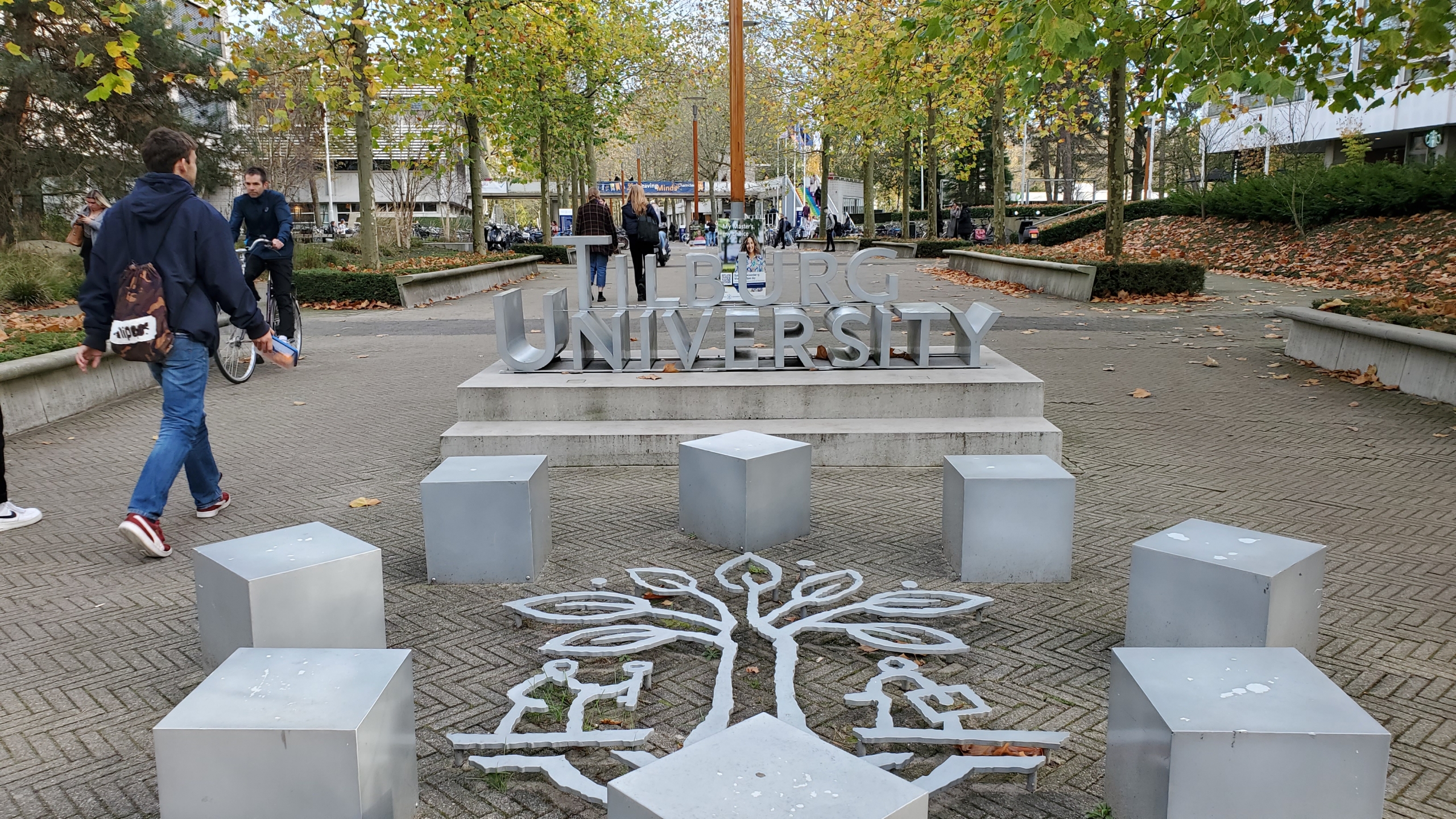
Tilburg University campus
I’m taking five classes this semester: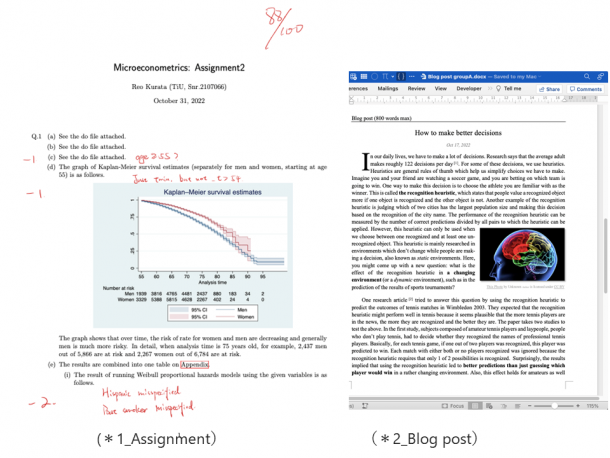
・Microeconometrics 3
・Panel Data Analysis of Microec. Decisions
・The Psychology of Economics
・Sem. Eco. & Psych. of Soc. Norms & Strat. Behav.
・Business Analytics and Emerging Trends
I was impressed by the average size of each class and the large amount of preparation needed for each class. Professors tend to recommend for us to do our assignments as group work, so I always cooperate with my lovely mates and try to discuss it together. Very nice! For example, in The Psychology of Economics, we had an assignment called “Blog post,” in which a group of students had to compose a scientific paper in a blog format (*image 2_Blog post).
The daily life here is brand new to me because I am sharing a house, cooking my own meals, and commuting to school by bike for half an hour, all of which I have never experienced before. Besides, the market price in the Netherlands is higher than most other EU countries, and the depreciation of Japanese yen is very serious these days. To be sure, this situation is challenging for me, but I can still spend my time beneficially because of those around me.
FUJIOKA, Kosuke Graduate School of Economics M2
I am Kosuke Fujioka, a master’s student in the Graduate School of Economics. I decided to participate in the QTEM program because I had felt the need to study abroad for a long period of time to improve my language skills since I was an undergraduate student, and because I was attracted by the QTEM curriculum specializing in empirical analysis methods. In order not to be passive in my study abroad, I had studied English and basic statistics and econometrics concurrently with my own research prior to my departure.
When I first applied to the program, the Covid-19 situation was not so good, but even today, although I cannot say that it is completely safe, I have had almost no inconveniences.
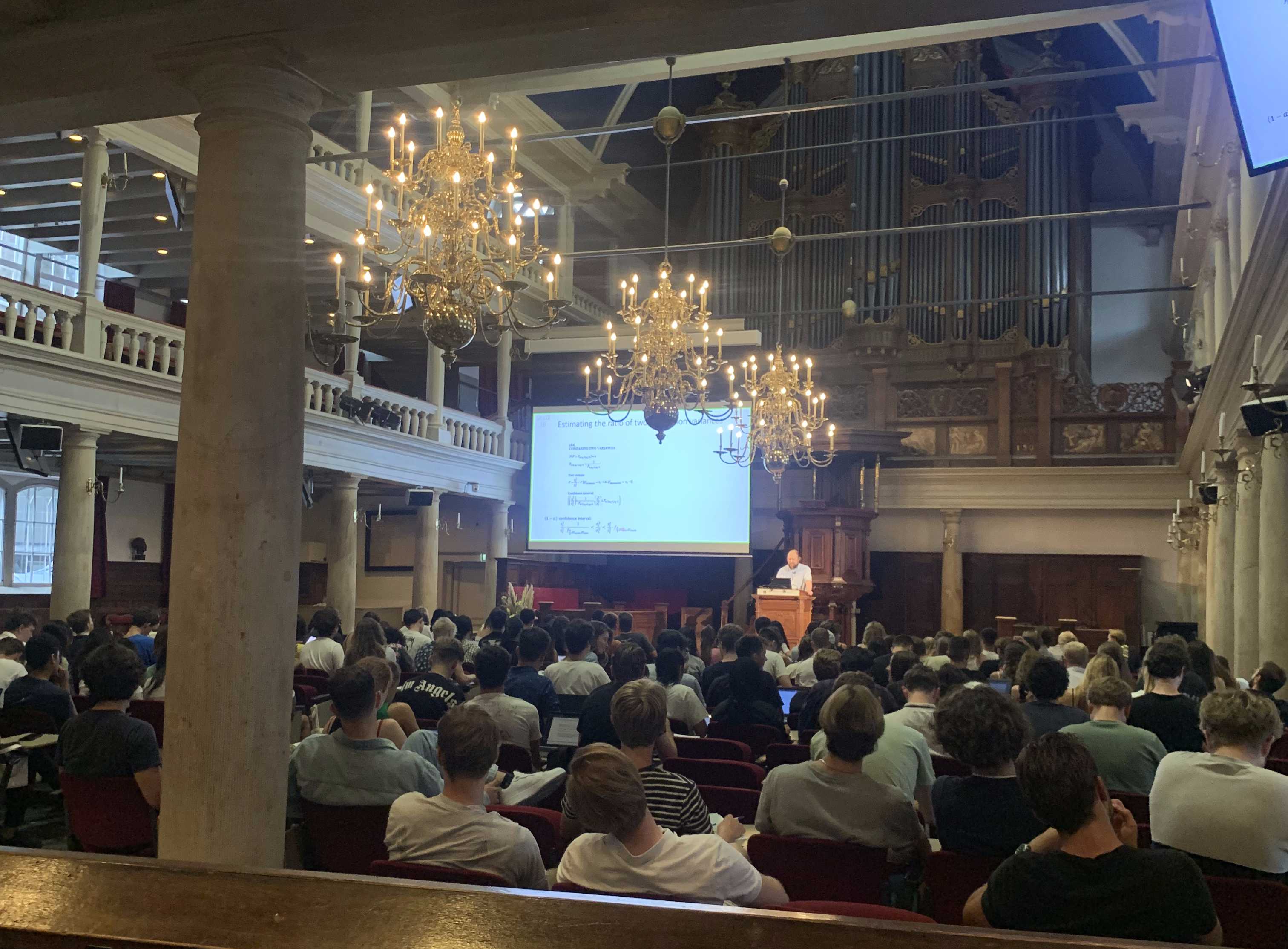
Sometimes lectures are held in incredibly solemn places.
For every course at the University of Amsterdam, where I am currently enrolled, there are two types of classes: Lecture, which is a large lecture, and Tutorial, which is a small-group class where students practice problems and discuss them. They are both complementary to each other and provide attentive learning opportunities for students. The students around me are very motivated to learn, and I am inspired by them every day. The University of Amsterdam divides the semester into three blocks, so I have already taken several final exams, all of which are very well organized and difficult, and encourage me to continue to learn hard.
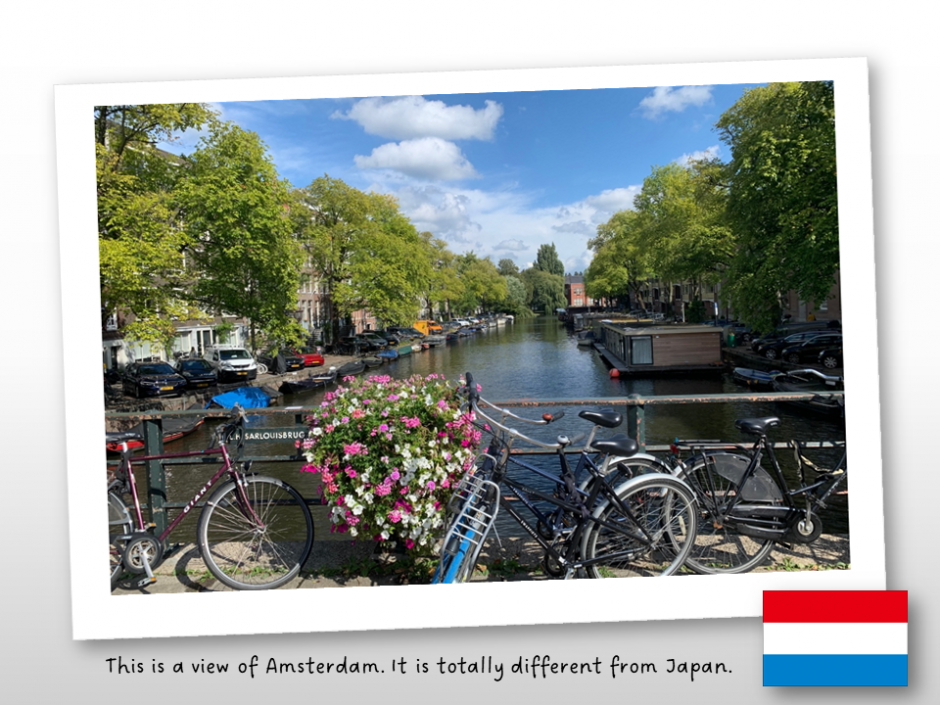
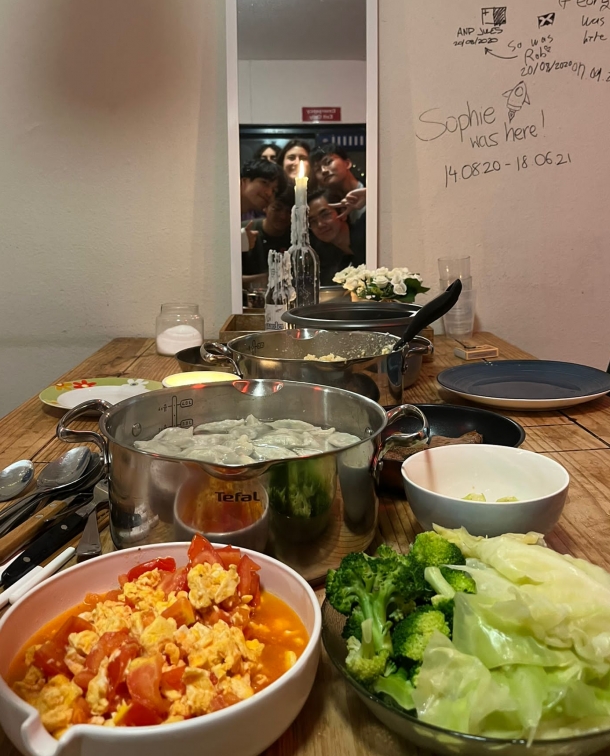
We regularly cook dinner together in the dormitory.
On the other hand, in my daily life, I am impressed by the beautiful scenery of Amsterdam and am generally enjoying a comfortable life. I am enjoyably cooking meals with my friends on the same floor in the shared kitchen of the dormitory. Every day I realize that the important spirit in studying abroad is not just having an ambition to improve language skills or having a strong interest in learning, but having the spirit of DIY, including cooking for yourself or being dauntless that what will be, will be.
I would like to continue to enjoy most of the limited time I have here and live a fulfilling study abroad experience.


